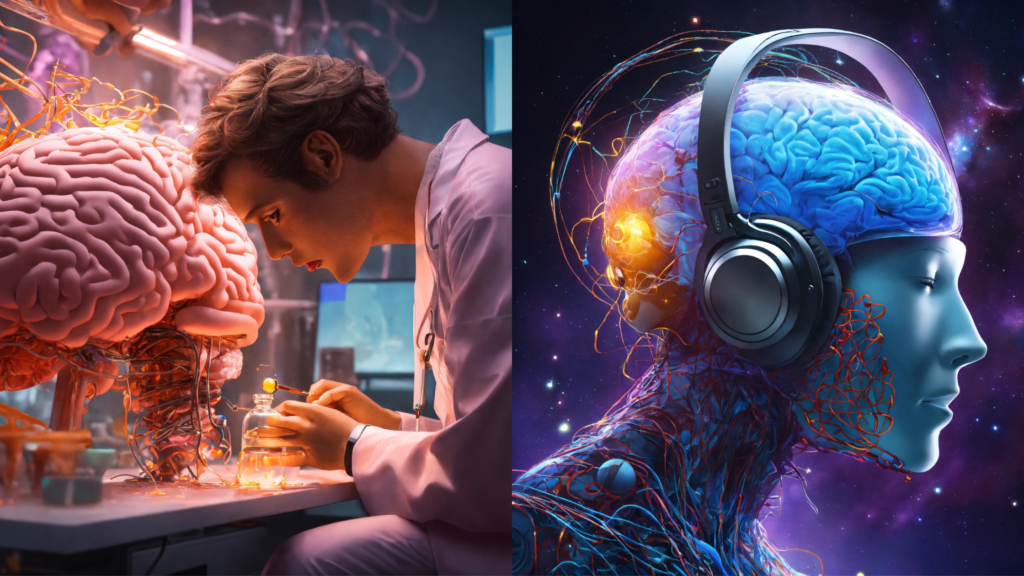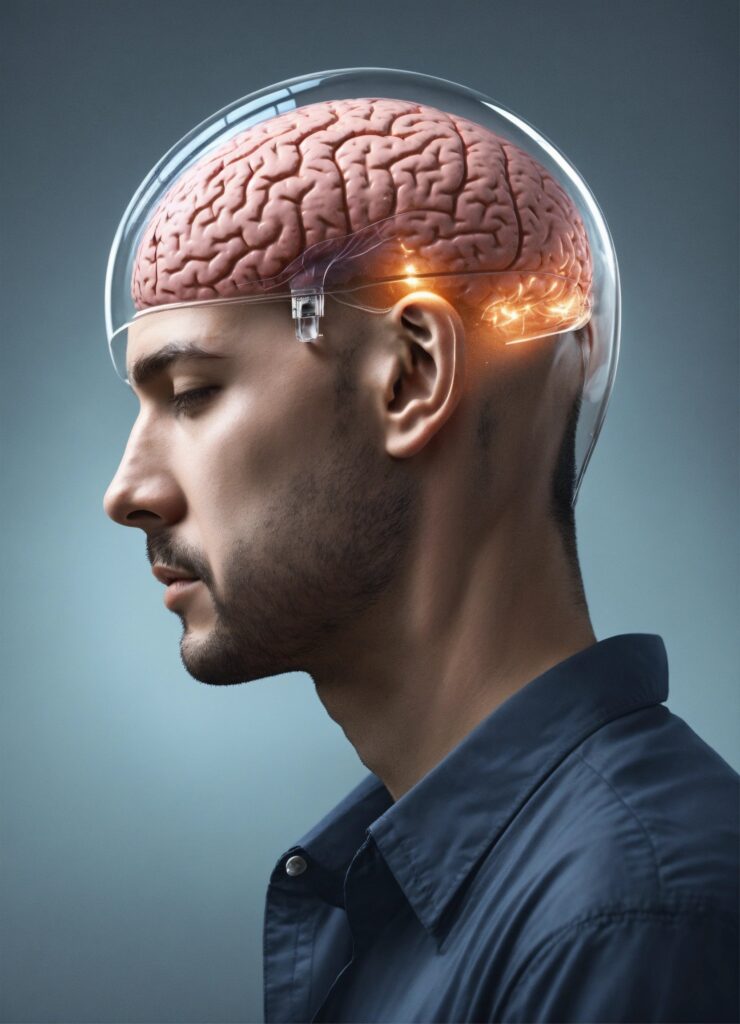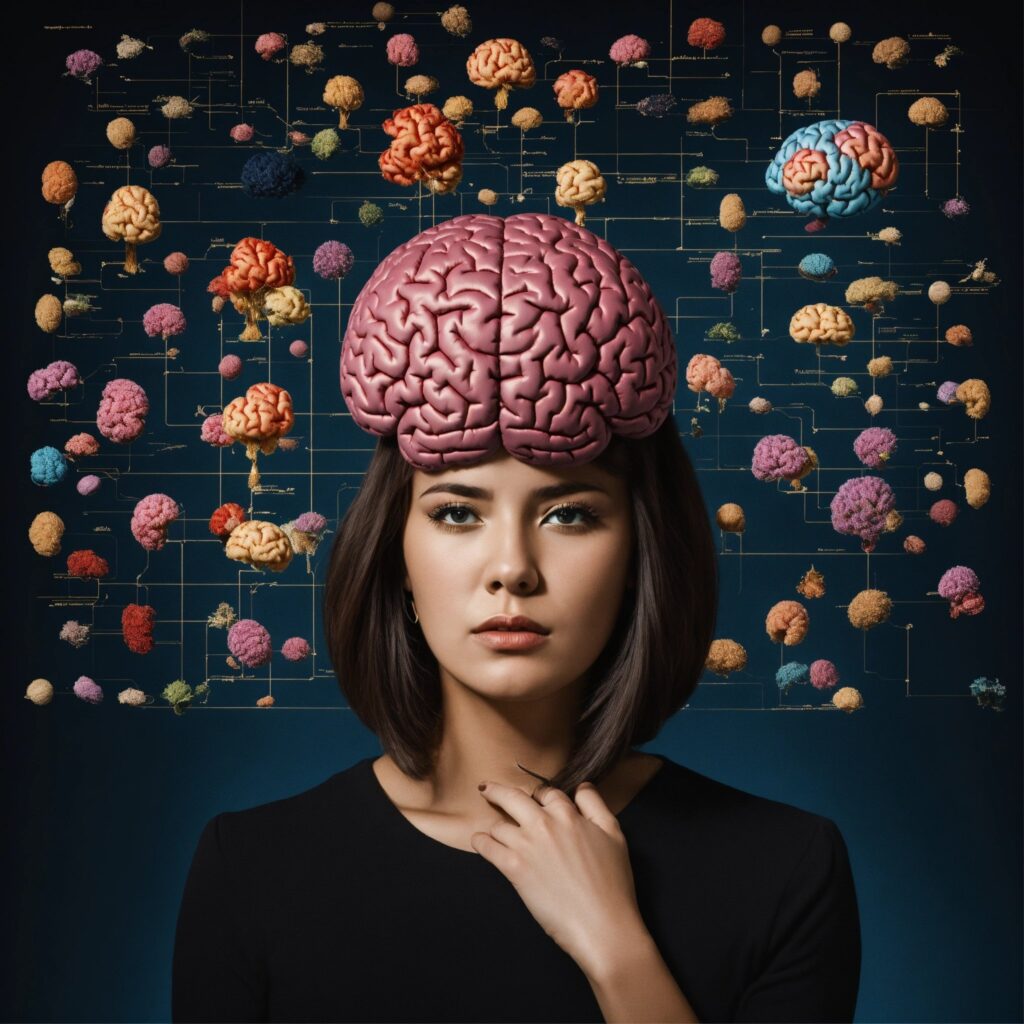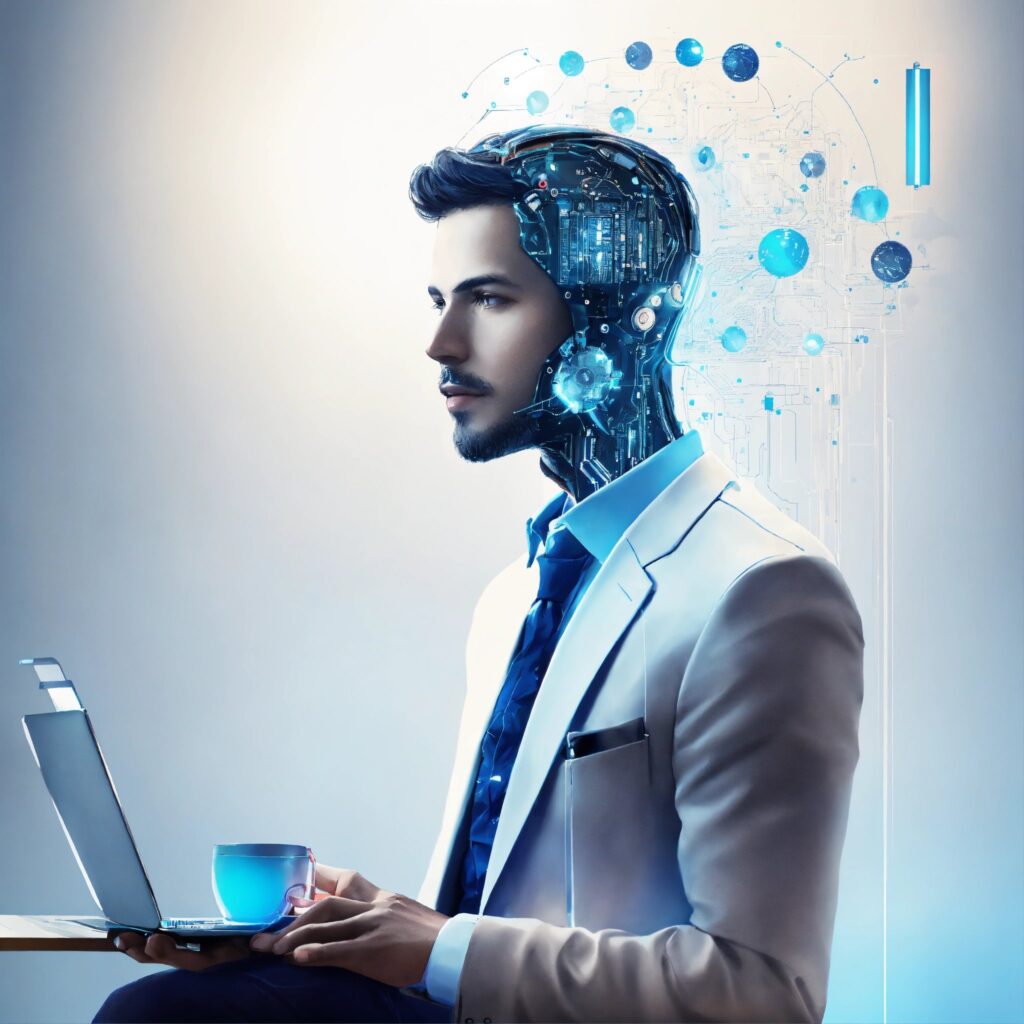Last Updated on December 22, 2024 by Digital pariksha
In today’s digital age, artificial intelligence (AI) isn’t just a technological marvel; it’s like that quirky friend who always has a solution—but sometimes gives you really weird advice. AI has waltzed into our lives, affecting everything from how we shop to how we swipe right (or left), and now it’s got its algorithms aimed at mental health. As we juggle the chaos of modern life—work stress, meme overload, and the existential dread of running out of coffee—understanding AI’s role in cognitive health has never been more important.
This article uncovers five mind-blowing truths about how AI impacts mental well-being. Spoiler alert: it’s not all sunshine and dopamine hits. From apps that claim to be better therapists than your best friend, to chatbots that might need therapy themselves, we’ll explore the benefits, challenges, and downright bizarre moments where AI meets mental health. Buckle up—this is going to be a wild ride through the matrix of emotions and machine learning!

1. AI as a Diagnostic Tool 🤖
The Rise of Smart Diagnostics
One of the most significant breakthroughs in mental health care facilitated by AI is the advancement of diagnostic tools. Traditional methods of diagnosing cognitive health conditions often rely on subjective assessments and clinician intuition. However, AI technologies can analyze vast amounts of data to identify patterns and symptoms that may go unnoticed by human practitioners.
How AI Works in Diagnosis
AI systems utilize machine learning algorithms to examine data from various sources, including:
- Clinical Interviews: Machine learning models analyze responses to identify common patterns associated with specific disorders.
- Wearable Tech Data: Insights from wearable devices, like heart rate and sleep patterns, contribute to understanding mental health states.
- Social Media Activity: Natural language processing (NLP) can evaluate language use and sentiment in social media posts to detect early signs of mental health issues.
The Benefits of AI Diagnostics
- Early Detection: AI can identify mental health conditions sooner, allowing for timely intervention and treatment.
- Objective Analysis: By relying on data, AI reduces the chances of bias in diagnosis, ensuring a more accurate understanding of a person’s mental health.
- Accessibility: AI-driven diagnostic tools can be deployed in underserved areas where mental health professionals are scarce.
The Challenges Ahead
While AI shows tremendous promise in improving diagnostic accuracy, challenges remain:
- Privacy Concerns: The use of personal data raises ethical questions about privacy and consent.
- Dependence on Technology: Over-reliance on AI tools may lead to a devaluation of traditional clinical skills.

2. Therapeutic Chatbots: Friends or Foes? 💬
–>The Emergence of AI Companions
Therapeutic chatbots are among the most visible applications of AI in cognitive health. These digital companions are designed to provide support, guidance, and even therapy to users struggling with emotional distress.
–>Popular Examples of Therapeutic Chatbots
- Woebot: A cognitive-behavioral therapy (CBT) chatbot that provides support and coping strategies for anxiety and depression.
- Wysa: An AI-powered app that offers real-time emotional support and self-care tools.
–>The Advantages of Chatbots
- 24/7 Availability: Unlike human therapists, chatbots are always available, providing immediate support during crises.
- Anonymity: Users may feel more comfortable discussing sensitive issues with a chatbot than with a human.
- Cost-Effective: Many chatbots offer free or low-cost services, making mental health support accessible to a broader audience.
–>Potential Pitfalls
However, the reliance on chatbots raises important concerns:
- Lack of Human Empathy: While chatbots can simulate conversation, they lack genuine emotional understanding, which can be crucial in therapy.
- Inappropriate Responses: There is a risk of chatbots providing incorrect or harmful advice, especially in severe cases of mental illness.
3. Social Media Algorithms and Mental Health 📱
–>The Double-Edged Sword of Social Media
Social media platforms leverage AI algorithms to curate content tailored to users’ preferences. While this personalization can enhance user experience, it has significant implications for mental health.
–>How Algorithms Influence Mental Health
- Echo Chambers: Algorithms often create echo chambers where users are only exposed to opinions and content that reinforce their beliefs, potentially leading to anxiety and isolation.
- Comparison Culture: The constant exposure to idealized versions of life can exacerbate feelings of inadequacy and low self-esteem.
–>The Impact of Social Media on Mental Health
- Increased Anxiety and Depression: Studies have shown a correlation between heavy social media use and the prevalence of anxiety and depressive symptoms.
- Cyberbullying and Trolling: AI-driven content moderation tools struggle to effectively combat harassment, leading to negative experiences for users.
–>Finding Balance
To mitigate the negative impacts of social media on mental health, consider the following strategies:
- Conscious Consumption: Be mindful of the content you engage with and its effect on your mental state.
- Digital Detox: Taking breaks from social media can help alleviate stress and improve overall well-being.
4. AI in Personalized Treatment 🎯
–>Tailoring Mental Health Interventions
AI has unlocked new possibilities for personalized treatment plans in mental health care. By analyzing individual data, mental health professionals can tailor interventions that suit each person’s unique needs.
–>The Role of Data in Personalized Treatment
- Genetic Information: AI can analyze genetic markers to determine which medications may be most effective for specific individuals.
- Behavioral Data: Insights from user behavior and preferences allow for customized therapeutic approaches.
–>Advantages of Personalized Treatment
- Improved Outcomes: Personalization can lead to more effective treatment plans, increasing the likelihood of positive results.
- Engagement: Patients are more likely to adhere to treatment when it resonates with their personal experiences.
–>Ethical Considerations
Despite its advantages, personalized treatment through AI raises ethical concerns, including:
- Data Privacy: Safeguarding sensitive personal data is paramount to maintaining trust in AI-driven solutions.
- Access Disparities: Unequal access to advanced AI tools could exacerbate existing disparities in mental health care.

5. The Dark Side: AI and Mental Health Issues 🌑
–>Unintended Consequences of AI Integration
While AI offers numerous benefits in mental health, it can also contribute to mental health issues. Understanding these unintended consequences is essential for responsible AI deployment.
–>Job Displacement and Economic Anxiety
As AI systems take over roles traditionally held by humans, there is a growing concern about job loss and economic instability, which can contribute to anxiety and depression.
–>Technology Overload
The omnipresence of technology can lead to mental fatigue, reducing the capacity for real-world interactions and connection. This “technology overload” can result in:
- Increased Loneliness: Ironically, while technology connects us, it can also foster feelings of isolation.
- Burnout: Continuous engagement with digital platforms can lead to burnout, impacting both physical and mental well-being.
Recognizing the Need for Balance
Ah, technology—a blessing and a curse. It’s like that friend who offers to help you move, but then drops your couch down the stairs. To keep the chaos in check:
- Limit Screen Time: Give your screens some “me-time.” Set boundaries, so you can enjoy life’s finer things—like awkward small talk or the thrill of forgetting where you put your phone. Bonus: your eyes might thank you for not staring into a blue-lit abyss all day.
- Seek Professional Help: If your phone’s notifications are starting to sound like a horror movie soundtrack, it might be time to chat with someone. And no, I don’t mean Siri—real humans are great for helping you reboot your mental health.
- Rediscover Offline Fun: Try activities that don’t involve Wi-Fi, like board games, reading a physical book, or yelling “Bingo!” even if you’re not playing. It’s called nostalgia, and it pairs wonderfully with less stress.

The intersection of AI and mental health is like trying to pair gourmet chocolate with instant noodles—unexpected, intriguing, and sometimes a little messy. AI offers dazzling opportunities to revolutionize mental health care, but it also comes with challenges that make you want to shout, “Did nobody test this in beta?”
By diving into these five shocking truths about AI’s impact on mental health, you’ll discover how to harness its incredible potential while avoiding the pitfalls. Spoiler alert: not every algorithm is your therapist, no matter how convincingly it says, “I understand.”
As we chart this brave new world, let’s integrate AI thoughtfully into our mental health game plan. After all, we want technology to be the superhero sidekick, not the villain tying us to the metaphorical train tracks.
Mental well-being is as complicated as trying to explain why you watched 18 cat videos instead of doing your chores. If you or someone you know is struggling, don’t hesitate to reach out for help—it’s not just a sign of strength, it’s also the human thing to do. Let’s leave the cold, robotic responses to chatbots, shall we? 🤖💪
🌈 Additional Resources
- National Alliance on Mental Illness: NAMI
- World Health Organization Mental Health: WHO Mental Health
- Therapy Chatbot Options: Explore various therapeutic chatbots that provide support.
As we march boldly into the AI-dominated future (cue dramatic music), let’s not forget to pack mental health in our virtual suitcase. After all, we can’t expect robots to handle everything—especially when we’re the ones needing a pep talk after a rough day. 🤖💚 Let’s aim for a balanced approach where technology is our trusty sidekick, not our therapist in disguise. Because honestly, do we really want Siri reminding us to breathe in the middle of a breakdown? (Okay, maybe we do.)
Mental health is like Wi-Fi: when it’s strong, everything works better; when it’s weak, life feels laggy. So, let’s prioritize understanding how tech can help us foster a healthier society without turning us into screen-addicted zombies. Together, we can use AI to build a world where our well-being thrives—preferably with fewer error messages and more moments of human connection.
You may be interested in knowing about: 6 Tools That Open a New Dimension of Expression.
Discover more from Digital Pariksha
Subscribe to get the latest posts sent to your email.
